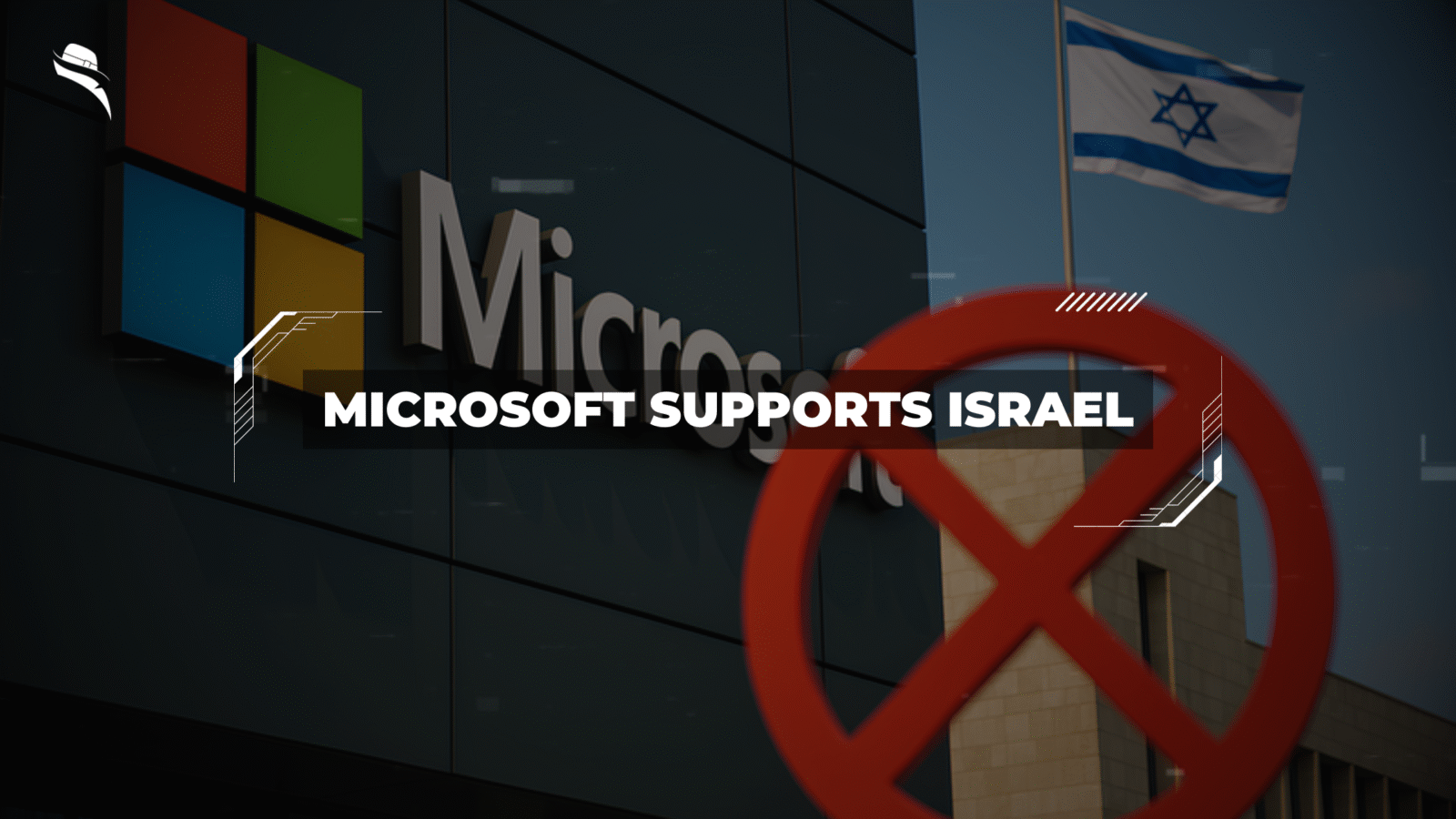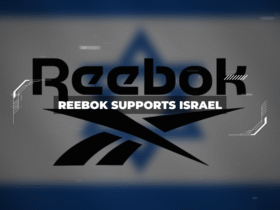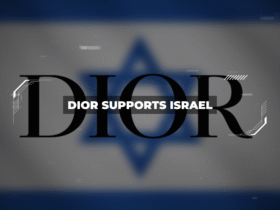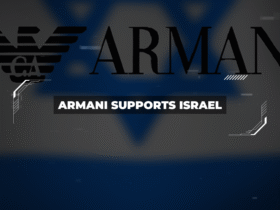Microsoft supports Israel with advanced artificial intelligence and cloud computing services during the Gaza conflict, as recently acknowledged by the tech giant. Military use of commercial AI products skyrocketed nearly 200 times following the October 7, 2023, Hamas attack, highlighting the rapidly expanding role of technology in modern warfare.
During the war, Microsoft Israel Azure Cloud usage by the Israeli military increased significantly, with monthly consumption rising 60% higher in the first six months of conflict compared to pre-war levels. Furthermore, the Microsoft Israel Military AI Integration has seen unprecedented growth, with Azure’s machine learning tools consumption jumping 64 times higher by March 2024 than in September 2023. Earlier this year, reports revealed that Microsoft provided Israel’s defense services with at least $10 million in computing and storage services.
While Microsoft confirmed providing the Israel Ministry of Defense with “software, professional services, Azure cloud services, and Azure AI services, including language translation”, the company has also emphasized that its products are governed by its Acceptable Use Policy and AI Code of Conduct, which prohibit using Microsoft services to harm civilians. However, this relationship has sparked significant ethical debates about the role of technology companies in conflicts where civilian casualties are extensive.
Microsoft Supports Israel & Growing Role in Israeli Military Operations
The partnership between Microsoft and Israel’s defense establishment began long before the current conflict. Over the years, this collaboration has evolved from basic software licensing to sophisticated military technology integration.
Initial partnerships before October 2023
Prior to October 2023, Microsoft had already established strong ties with the Israeli defense sector. The tech giant operated research and development centers in Israel, employing thousands of local engineers. These centers focused on cybersecurity, artificial intelligence, and cloud computing technologies that would later become crucial for military operations. Additionally, Microsoft had been providing the Israeli Defense Forces (IDF) with standard enterprise solutions and gradually increasing access to more advanced capabilities.
Post-October 7 escalation and emergency support
After the Hamas attack on October 7, 2023, Microsoft rapidly scaled up its support for Israel’s military operations. The company swiftly mobilized emergency technical teams to ensure uninterrupted service during critical military operations. This period marked a turning point in the relationship, with Microsoft prioritizing Israeli defense needs and fast-tracking access to advanced AI tools. Technical support staff worked around the clock to maintain systems during periods of intensive military activity, ensuring that cloud-based intelligence and operational systems remained functional despite unprecedented demand.
Contracts and financial scale of involvement
The financial scope of Microsoft’s involvement with Israel’s military has grown substantially since October 2023. Beyond the previously mentioned $10 million in computing and storage services, Microsoft has entered into multiple expanded contracts with Israeli defense entities. These agreements encompass not only basic infrastructure support but also specialized AI development projects tailored for military applications. Moreover, Microsoft has invested in training programs specifically designed for military personnel to maximize the effectiveness of their Azure-based solutions in combat scenarios.
As this partnership continues to deepen, questions remain about the long-term implications for both Microsoft’s global business model and the nature of military AI integration.
What Microsoft Provided: Azure Cloud and AI Services
“In one investigation, it was found that AI models from Microsoft and Open AI had been used as part of an Israeli military program to select bombing targets in Gaza and Lebanon.” — Business & Human Rights Resource Centre (reporting on investigations), Reporting on investigative findings
Microsoft’s Azure infrastructure has become central to Israel’s military operations, providing crucial technical capabilities for the conflict in Gaza. As the conflict escalated, the reliance on these technologies grew exponentially across multiple domains.
Azure cloud storage and computing power
When the Israeli military’s internal Operational Cloud became overloaded after October 7, 2023, they turned to commercial providers, including Microsoft Azure, for additional computing power. Historically, Azure had been considered Israel’s main cloud provider for the Defense Ministry and army units handling classified information. The military’s consumption of Azure cloud storage facilities jumped dramatically, with average monthly usage in the first six months of the war measuring 60% higher than pre-war levels. Nevertheless, according to sources in the cloud industry, since Amazon won the Nimbus tender, it has been competing aggressively with Azure to become the army’s top service provider.
AI tools for translation and speech-to-text
The Israeli military heavily utilized Microsoft’s AI services, particularly for language translation, which constituted about half of the average monthly consumption during the first year of the war. Other critical AI tools included speech-to-text conversion and automatic document analysis systems. In October 2023 alone, the military’s consumption of Azure AI services surged sevenfold compared to the previous month. By March 2024, this usage had skyrocketed to 64 times higher than before the conflict began.
Access to OpenAI’s GPT-4 via Azure
The Israeli military began using OpenAI’s powerful GPT-4 model through Microsoft Azure in August 2023, with usage increasing 20-fold after October. GPT-4 ultimately accounted for approximately one-quarter of the military’s consumption of machine learning tools provided by Microsoft. In January 2024, OpenAI quietly removed its restrictions against military usage from its policies, essentially enabling such applications.
Support for classified military units like Unit 8200
Azure provided services to specialized intelligence units, including Unit 8200, Israel’s main signal intelligence agency. Files indicate that many AI-based services were used on “air-gapped” systems disconnected from the internet, suggesting deployment for highly sensitive operations. Between October 2023 and June 2024, Israel’s defense ministry purchased 19,000 hours of engineering support and consultancy services from Microsoft, generating approximately $10 million in fees.
Ethical Concerns and Lack of Transparency
Amid growing public scrutiny, Microsoft has faced questions about its technological role in the Gaza conflict.
Internal reviews and external audits
In response to allegations about Azure being used in civilian harm, Microsoft conducted an internal assessment and hired an unnamed external firm to investigate. After “interviewing dozens of employees and assessing documents,” the company stated it found “no evidence” that its technologies were used to harm people in Gaza. Nonetheless, Microsoft never identified the external firm or released the full investigation report. This lack of disclosure prompted the advocacy group No Azure for Apartheid to demand complete transparency about the findings.
Microsoft’s Acceptable Use Policy and AI Code of Conduct
Although Microsoft maintains that all customers must adhere to its Acceptable Use Policy and AI Code of Conduct, which explicitly prohibits using services to “inflict harm on individuals, organizations, or society”, questions remain about enforcement mechanisms. The company’s Responsible AI principles encompass fairness, reliability, privacy, and accountability.
No visibility into private server usage
Crucially, Microsoft acknowledged a significant oversight gap: “Microsoft does not have visibility into how customers use our software on their own servers or other devices”. Furthermore, IMOD’s government cloud operations run through other providers.
Concerns from human rights organizations
Meanwhile, various rights groups caution that error-prone AI systems could contribute to civilian targeting decisions. A UN Special Rapporteur report described corporate technology providers as entangled in an “economy of genocide“, with one Israeli colonel characterizing cloud technology as “a weapon in every sense”.
Public Backlash and Employee Protests
“Microsoft has fired an employee who interrupted a speech by CEO Satya Nadella to protest the company’s work supplying the Israeli military with technology used for the war in Gaza.” — Business & Human Rights Resource Centre (reporting on employee protest), Reporting on internal dissent and employee activism
Employee unrest at Microsoft erupted in response to the company’s Israeli military partnerships. These internal tensions have manifested through organized campaigns, terminations, and demands for greater transparency.
‘No Azure for Apartheid’ campaign
Worker-led protests began coalescing under the “No Azure for Apartheid” banner, demanding that Microsoft terminate all Azure contracts with the Israeli military and government. The campaign’s petition garnered over 7,000 employee signatures, with more than 270,000 letters sent to Microsoft executives. Indeed, these activists coordinated with external organizations like the Palestinian BDS National Committee to increase pressure on Microsoft. Their core demands included disclosure of all Israeli military ties, a public call for a ceasefire, and protection for pro-Palestinian speech within the company.
Employee firings and internal dissent
Microsoft fired multiple employees for protest actions. In April 2024, two employees disrupted the company’s 50th anniversary celebration, with one calling Microsoft AI CEO Mustafa Suleyman a “war profiteer.” Both lost their positions shortly afterward. Furthermore, in May 2024, engineer Joe Lopez was terminated after interrupting CEO Satya Nadella’s keynote at the Build developer conference. The company reportedly also began blocking internal emails containing words like “Palestine,” “Gaza,” or “genocide.”
Calls for Microsoft to release full investigation report
After Microsoft claimed its internal review found “no evidence” of harmful technology use in Gaza, the No Azure for Apartheid group immediately demanded the release of the complete investigation report.
For a broader look at how global tech companies are shaping Israel’s digital infrastructure, read our main piece: Tech Companies That Support Israel
Final Thoughts
The unprecedented integration of commercial AI with military operations represents a shift in warfare technology dynamics. Microsoft’s statements acknowledge internal and external concerns but leave critical questions unanswered. Consequently, when the company conducted an internal review and hired an external firm, it neither identified this outside organization nor released the complete investigation report.
Even so, this situation highlights a remarkable power shift. “We are in a remarkable moment where a company, not a government, is dictating terms of use to a government that is actively engaged in a conflict,” notes Emelia Probasco from Georgetown University’s Center for Security and Emerging Technology. She compares it to “a tank manufacturer telling a country you can only use our tanks for these specific reasons. That is a new world”.
Regardless of Microsoft’s assurances, its acknowledgment that it “does not have visibility into how customers use our software on their own servers or other devices” reveals significant oversight limitations. In fact, investors are now demanding greater transparency, with a shareholder resolution asking the board to commission a public report on preventing human rights violations.
Former Microsoft employee Hossam Nasr, fired after organizing a vigil for Palestinians, dismisses the company’s statements as “a PR stunt to whitewash their image”. Overall, this case illuminates the complex ethical terrain where corporate technology, military operations, and human rights intersect.
FAQs
1. How is Microsoft supporting Israel during the Gaza conflict?
Microsoft has provided Israel with Azure cloud services, AI tools, and professional support, including translation, speech-to-text, and GPT-4 access, to aid in military operations following the October 7, 2023, Hamas attack.
2. What role does Microsoft Azure play in Israeli military operations?
Azure cloud infrastructure has been heavily used by Israel’s Ministry of Defense and the IDF to store surveillance data, run machine learning models, and support Unit 8200 operations with classified systems.
3. Has Microsoft provided artificial intelligence tools to the Israeli military?
Yes. Microsoft supplied AI tools for translation, document analysis, and speech recognition. Azure usage for machine learning surged 64x by March 2024, with GPT-4 use increasing twentyfold after the conflict began.
4. How much has Microsoft earned from its Israeli defense contracts?
By June 2024, Microsoft had provided at least $10 million in computing and storage services and sold 19,000 hours of consultancy to Israel’s defense ministry, with multiple expanded contracts reported.
5. What is Microsoft’s stance on its products being used in warfare?
Microsoft says its products follow an Acceptable Use Policy and Responsible AI Code of Conduct, which prohibit harming civilians. However, it admits having no visibility into how customers use software on private servers.
6. What ethical concerns have been raised about Microsoft’s Israel partnership?
Human rights groups warn that Microsoft’s AI tools could enable targeting errors, contribute to civilian harm, and lack transparency. A UN report even called such partnerships part of an “economy of genocide”.
7. Are employees protesting Microsoft’s involvement with Israel?
Yes. The “No Azure for Apartheid” movement has organized employee protests, walkouts, and petitions. Microsoft has fired multiple employees, including those who disrupted events or voiced opposition publicly.
8. What has Microsoft done in response to criticism over its tech being used in Gaza?
Microsoft conducted an internal investigation and hired an unnamed external firm but declined to release the findings or name the auditing company, fueling further backlash and demands for transparency.
9. How is OpenAI connected to Microsoft’s role in the conflict?
The Israeli military accessed GPT-4 through Microsoft Azure starting in August 2023. After OpenAI removed its ban on military use in January 2024, its models became a key part of Israel’s targeting infrastructure.
10. Is Microsoft legally responsible for how its technologies are used?
Microsoft claims users are responsible for ensuring ethical use under its policies, but critics argue that the company must enforce stronger oversight, especially in conflict zones where its tech could cause civilian harm.







3 Comments